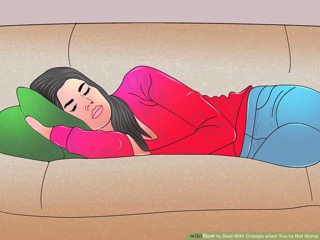
For some women, their monthly period is no big deal. For others, it’s a grueling journey through depression, anxiety, irritability, pain, and more. If you think premenstrual syndrome (PMS) is too awful to be natural, you’re right — PMS is a symptom of a hormone imbalance often caused by too much stress.
Although a variety of factors can cause hormonal imbalances and PMS, one of the more common is low progesterone caused by long term chronic stress.
Low progesterone symptoms:
- Depression
- Mood swings
- Changes in weight or appetite
- Insomnia
- Anxiety
- Crying easily
- Irritability
- Poor focus and concentration
- Fatigue
- Frequent or irregular menstruation
- Low sex drive
- Migraines
How stress lowers progesterone
Chronic stress causes pregnenolone steal, a situation that causes progesterone deficiency and hormonal imbalances. Pregnenolone is a precursor hormone used to make progesterone and the stress hormone cortisol.
The body can only make so much pregnenolone. This means that if stress is always high, it “steals” pregnenolone from progesterone to make cortisol in order to meet the demands of stress. This causes an imbalance between progesterone and estrogen.
Factors that cause pregnenolone steal
Progesterone cream use can further skew hormones. It’s better to address the causes of low progesterone, which is typically stress-induced pregnenolone steal. Causes of pregnenolone steal and PMS include:
- Sugar and sweeteners, excess processed carbs — rice, pasta, bread, pastries, etc.
- Excess caffeine
- Food intolerances — gluten, dairy, eggs, soy, corn, nuts, grains, etc.
- Digestive issues — bloating, indigestion, diarrhea, constipation, leaky gut, pain, etc.
- Lack of sleep
- Inflammation — joint pain, chronic pain, skin rashes, brain fog, fatigue, etc.
- Autoimmune disease (such as Hashimoto’s)
- Overdoing it; over exercising
- Feeling constantly overwhelmed
- Poor nutrition
- Reverse pregnenolone steal to soothe PMS
Ways to reduce pregnenolone steal include an anti-inflammatory diet, restoring gut health, and managing autoimmunity.
A variety of compounds can help soothe PMS, such as omega 3 fatty acids and gamma-linoleic acid (GLA—evening primrose oil, borage oil, or black currant oil.
Supporting serotonin, a brain chemical that promotes well-being, may help with PMS mood symptoms — tryptophan, 5-HTP, St. John’s Wort, and SAMe.
This is a broad overview. Ask my office for more advice on using natural therapies to alleviate PMS and support healthy hormones.



Latest from the Blog
The Death of Red Dye #3
January 15, 2025What Is Red Dye No. 3? Red Dye No. 3, or Erythrosine, is a synthetic food color derived from coal tar. It was first approved by the FDA in the 1950s and quickly became one of the most popular artificial colors in food and cosmetics. Red Dye No. 3 was used in everything from candies, […] Read more
Latest from the Blog
Do You Know What Is In Your Protein Powder?
What’s Really in Your Protein Powder? Understanding the Risks Protein powders are a staple in many health-conscious diets, from athletes seeking muscle recovery to those simply aiming to boost their daily protein intake. With a wide variety of options available, choosing the right one can feel overwhelming. However, recent findings have raised concerns about what’s […] Read more